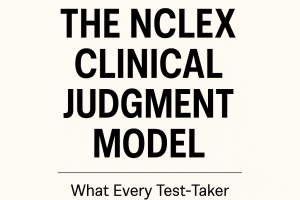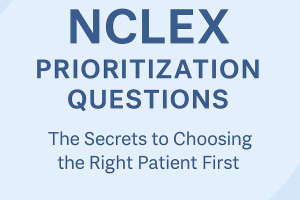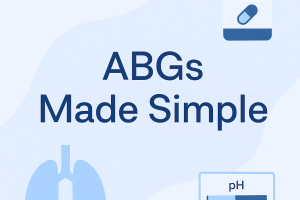NURSING COMMUNICATION AND DOCUMENTATION ESSENTIALS

Effective communication and accurate documentation are the cornerstones of high-quality nursing practice. These skills not only ensure seamless collaboration among healthcare teams but also safeguard patient safety and meet legal and ethical standards. In this blog, we will explore the critical aspects of nursing communication and documentation, their importance, and best practices to excel in these areas.
Why Nursing Communication is Essential
Communication in nursing extends beyond exchanging information; it builds trust, facilitates patient-centered care, and minimizes errors. Nurses are the primary link between patients, families, and other healthcare providers. Poor communication can lead to misunderstandings, compromised patient safety, and lower satisfaction rates.
Key Elements of Effective Communication in Nursing
• Active listening: Understanding patients’ concerns by listening attentively without interrupting.
• Clarity and simplicity: Using clear and straightforward language to avoid misinterpretation, especially when explaining medical terms.
• Empathy: Demonstrating care and understanding to build rapport with patients and families.
• Non-verbal cues: Maintaining open body language, appropriate eye contact, and a calm tone to reinforce verbal communication.
• Timeliness: Sharing critical information promptly to ensure swift decision-making in care delivery.
Common Communication Barriers
• Language differences: Working with patients who do not speak the same language can hinder understanding.
• Cultural differences: Misaligned cultural values may create gaps in communication.
• Emotional stress: Fear, anxiety, or frustration in patients or families may reduce the effectiveness of communication.
To overcome these challenges, nurses can utilize tools such as professional interpreters, cultural competence training, and conflict resolution techniques.
The Role of Documentation in Nursing
Documentation is an integral part of nursing practice, acting as both a communication tool and a legal record. It provides a detailed account of the care provided and ensures continuity across shifts and multidisciplinary teams. Accurate and comprehensive documentation is essential for patient safety, quality assurance, and legal protection.
Why Accurate Documentation Matters
1. Patient safety: Thorough documentation prevents medication errors, miscommunication, and redundant tests or procedures.
2. Legal protection: Documentation serves as evidence of care in case of legal disputes or audits.
3. Continuity of care: Clear records allow seamless handovers between healthcare professionals.
4. Quality improvement: Data from documentation can identify trends, gaps, and opportunities for better care delivery.
Best Practices for Nursing Documentation
1. Be concise and objective: Avoid subjective language or personal opinions. Focus on facts, such as “The patient reported pain at a level of 7/10” instead of “The patient seemed uncomfortable.”
2. Follow a standardized format: Use tools like SOAP (Subjective, Objective, Assessment, Plan) or PIE (Problem, Intervention, Evaluation) to organize documentation.
3. Timely entries: Document events as they occur to avoid inaccuracies or missing details.
4. Use proper abbreviations and terminology: Follow your facility’s approved list of medical abbreviations to maintain clarity.
5. Double-check for accuracy: Review your notes for completeness and avoid errors in spelling or dosage calculations.
The Link Between Communication and Documentation
Effective communication and documentation work hand in hand. Clear communication ensures accurate documentation, while comprehensive records support informed communication among healthcare professionals. For instance, proper documentation of a patient’s allergy ensures that this information is relayed accurately to the pharmacy and other caregivers.
The Ethical and Legal Aspects of Communication and Documentation
Nurses must adhere to ethical principles such as confidentiality, veracity, and accountability in both communication and documentation. Compliance with legal regulations like HIPAA (Health Insurance Portability and Accountability Act) is non-negotiable to protect patient privacy and avoid legal consequences.
Tips to Maintain Ethical Standards
• Avoid sharing patient information in non-secure environments, such as public spaces or personal messaging apps.
• Always verify information before sharing to prevent the spread of misinformation.
• Report any documentation errors immediately and follow institutional protocols to correct them.
Strategies to Improve Nursing Communication and Documentation
1. Leverage technology: Use electronic health records (EHRs) to streamline documentation and improve data accessibility.
2. Engage in ongoing training: Regular workshops on communication techniques and documentation standards help refine skills.
3. Seek feedback: Ask peers or supervisors to review your communication and documentation practices for improvement.
4. Practice mindfulness: Stay present and attentive during interactions to improve focus and reduce errors.
Conclusion
Mastering communication and documentation is not just about fulfilling professional responsibilities—it is about delivering safer, higher-quality care. By honing these skills, nurses can build stronger relationships with patients, ensure continuity of care, and uphold ethical and legal standards.
Practice Questions
1. Why is it important to document patient care in a timely manner?
a. To meet institutional policies
b. To ensure accuracy and continuity of care
c. To prevent patient complaints
d. To impress supervisors
Answer: b. To ensure accuracy and continuity of care
2. Which of the following is an example of effective nursing communication?
a. Using medical jargon with a patient to sound professional
b. Maintaining eye contact and paraphrasing the patient’s concerns
c. Interrupting the patient to save time during busy shifts
d. Speaking in a loud voice to assert authority
Answer: b. Maintaining eye contact and paraphrasing the patient’s concerns
3. What is a key principle of ethical nursing documentation?
a. Using subjective language to express personal opinions
b. Ensuring patient information is only shared with authorized personnel
c. Avoiding electronic health records for sensitive information
d. Keeping entries as brief as possible without additional details
Answer: b. Ensuring patient information is only shared with authorized personnel






